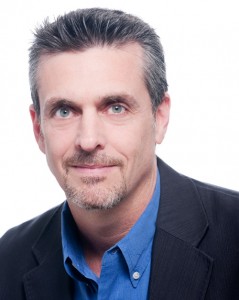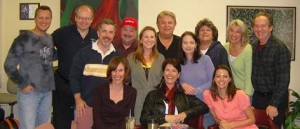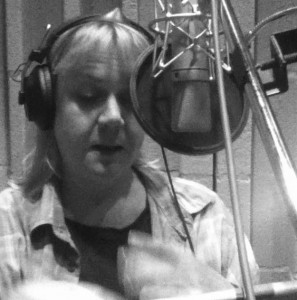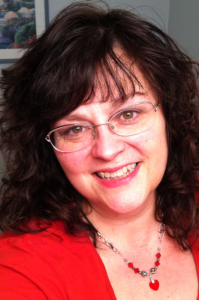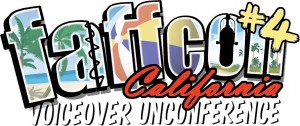Share
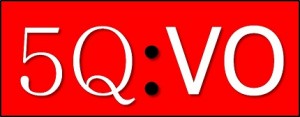
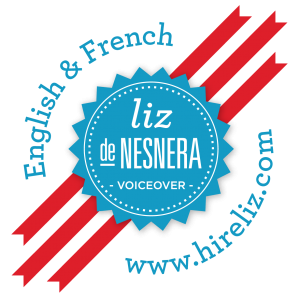
Today’s 5 Questions for a Professional Voice Over Talent are answered by Liz de Nesnera, a professional voice over talent based in New York.
1. The beginning: When did you know you wanted to be a voiceover talent; how did your career begin (please include what year it started) and then when did your passion for voiceover develop into something professional?
We all get to this crazy VO path from different places, which allow each of us to bring something unique to our reads….so my “beginning” has to go back a bit.
I grew up in a multi lingual family. Languages were always a huge part of my life.
I started my professional career working for the French Government in New York City.
I was that 20-something yuppie commuting to work in the power suit and sneakers, had 5 weeks vacation and I was using both my French and English skills every day. And I hated it. By 25 I was dragging myself to work with more and more difficulty.
So I made a change. I went back to school and learned audio production.
Much to my educated, multi-lingual parents’ horror, I left NYC to take a 50% pay cut as Production Director and Copywriter at a small independent Radio station in the wilds of Northern New Jersey. “You won’t be using your languages!” my mom lamented. But I fell in love with razor blades and tape (yes, the “olden days!”), and the craziness of radio. I soon started voicing some of the commercials that I wrote and produced. It was so fun! And yes, I LOVED hearing my voice on the radio! I was being creative and learning about new businesses every day. (Coming from New York City, I had NO idea what it meant to “detail” a car!)
Then, one day, one of the owners of the station told me that while they loved my writing and production skills, they did not want me to voice spots any more. I was devastated. I continued to write and produce (and still voice every now and then 😉 but realized that I needed another change. So the week after I turned 30 I went out on my own as a freelance copywriter & producer. 4 months later, on November 17th, 1994, my mother had a massive hemorrhagic stroke.
I spent the following 18 months caring full-time for my wheelchair bound mom, and my dad, who by this time had been diagnosed with Alzheimer’s disease.
By 1996, having run through my savings, I went back to work at a corporate recording studio. For 9 years I sat “behind the glass” listening to and directing some of the best voiceover talent in the NYC-metro area. I learned digital editing, client relations, project management, billing, accounting practices and voiceover talent wrangling. Did I mention I was using my languages again? Because of my English and French bilingualism, my conversational Russian, and my knowledge of German and Hungarian, I was able to direct and edit talent in many different languages, and yes, I was even able to get in front of the mic occasionally. It was great, but I was itching to move on. I just didn’t know how.
Then, in 2005, I got laid off. How wonderful! I was finally free to pursue my freelance dream again. And I did.
I had realized over the years behind the glass that although I loved production, being in front of the mic was even more fun.
My first client was a contact I had made as my corporate recording gig. I was on my way. The business skills that I had learned at the recording studio were a huge help in getting my voiceover business off on the right foot. I started getting clients though the “Pay to Play” sites as well as through referrals and my own research.
I’ve been a full-time voice talent for 7 years, and love it. There are ups and downs, of course, as in any business. But being able to pursue a career that challenges me, which allows me to be creative and work with fun people is a joy.
2. What is the one thing you know now that you wish someone had told you when you first started out in voiceover?
Don’t let the bastards get you down. Just because someone is an “expert” doesn’t mean that what they say is always correct. Trust in yourself, do your own homework. Oh, and yes, there IS math in voiceover.
3. What do you see as the biggest professional or personal obstacle you face that impacts your voiceover business and how are you working to overcome it?
Not letting the bastards get me down! I have a tendency to want to be perfect at whatever I do (Yes, I’m a Virgo) and when someone tells me that I am “less than”, I tend to jump to the conclusion that they are right. Over the years, I have come to realize that although I am not perfect (sigh…) I don’t stink either. I have regular clients who keep hiring me and new ones who regularly come on board. Yet, even today, I sometimes still need to call on good friends (you know who you are!) to remind me that I do have skills. It’s by having a wonderful support network that I am able to be move onward and upward.
4. What personal trait or professional tool has helped you succeed the most in your career so far?
Personal trait: Compartmentalizing. I spent 15 years being a caregiver while working and building a business. Being able to concentrate and build my business even while seeing my parents decline actually kept me sane! Frankly, clients don’t care about your personal problems. Yes, some clients become friends, but they hire you to do a job and they depend on you to do it. Being able to deliver even with “everything else going on” was vital to building my business, and my clients’ trust.
5. In your development as a voice over performer, who has been the one particular individual or what has been the one piece of performance advice (maybe a key performance trick, etc.) that you felt has had the most impact on your actual voice over performance and why?
In terms of my performance, the person who has been the most influential is Nancy Wolfson (http://www.braintracksaudio.com/ ). Working with Nancy has definitely taken my skills to the next level. She was able to hone in on exactly what I needed to work on to improve my performance. She’s tough, no nonsense and has an amazing ear. Having her in my corner has been amazing.
Now, as they say, this is show business. And while yes, of course, performance is key, you also have to embrace the business aspect of your development as a voice performer. Being a great performer with no business skills, leads to no one to perform for. In that regard there are several people who have been vital to my career development (sorry, Peter, I know I’m breaking the rules…I’m such a rebel ;-):
Barbara Winter (http://www.joyfullyjobless.com/ ), whose commitment to entrepreneurial thinking has been an inspiration.
Philip Banks (http://www.philipbanks.com/) & Bob Souer (http://bobsouer.com/ ) whose concrete numbers gave me financial goals to reach for.
Moe Egan (http://www.voiceoversbymoe.com/ ) whose friendship and nuts and bolts advice on the day-to-day realities of life as a full-time VO have been invaluable.
Basically, having a support network of talented people is what keeps me moving ahead and improving every day.
Tags: 5 Questions for a Professional Voice Over Talent, 5Q:VO, commentary, voiceover advice by peter k. o'connell, your friendly, neighborhood voice-over talent
12 Comments »

